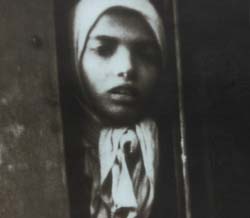

voormalig kamp westerbork

former camp westerbork

Lange tijd had ik de wens eenmaal Kamp Westerbork, in midden-Drenthe, de gruwelplaats van waaruit in de Tweede Wereldoorlog meer dan 100.000 Joden, zigeuners en verzetsstrijders in de Tweede Wereldoorlog aan hun laatste reis begonnen, te bezoeken. Het duurde 40 jaar voordat dit gebeurde. Het werd, zoals ik verwachtte, weer een pijnlijke en dramatische confrontatie met de afschuwelijke misdaden uit het verleden die niet in woorden te vatten zijn .......
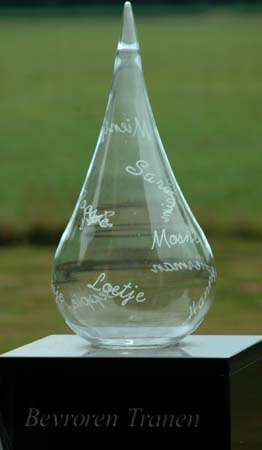
'Frozen Tears'
For a long time I wanted
to visit Camp Westerbork, situated in the province of Drenthe, the horror place from where in World War II more than 100.000
Jews , gipsies and resistance fighters started their last yourney. It took
me 40 years to do so. It was, like I expected, a painful and dramatic
confrontation with the horrible crimes from the past which cannot be put into
words .....
![]()
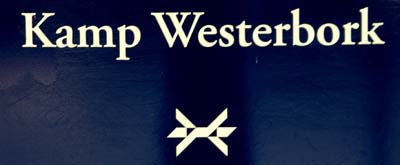
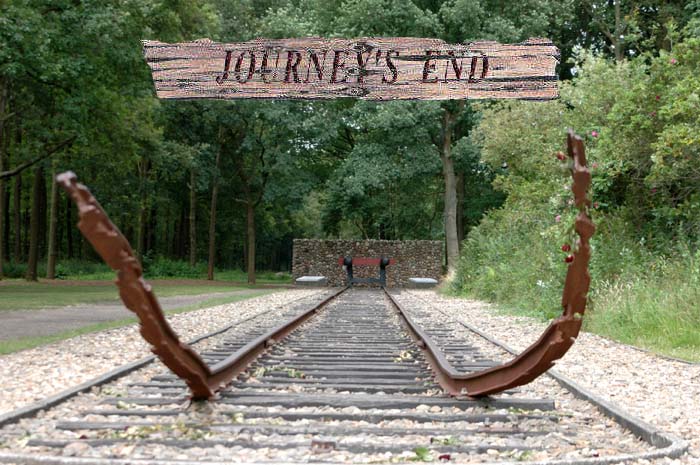
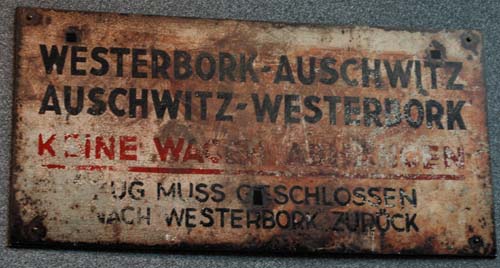
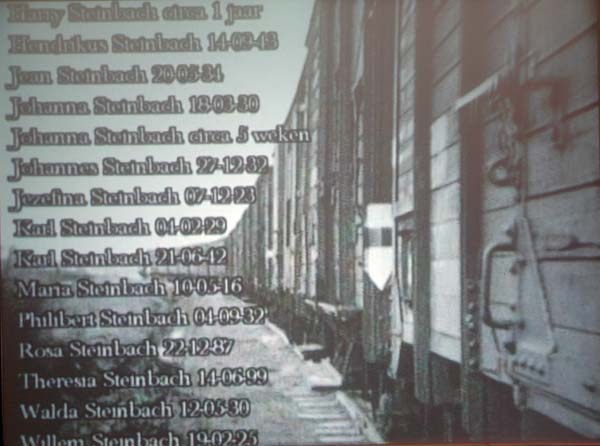
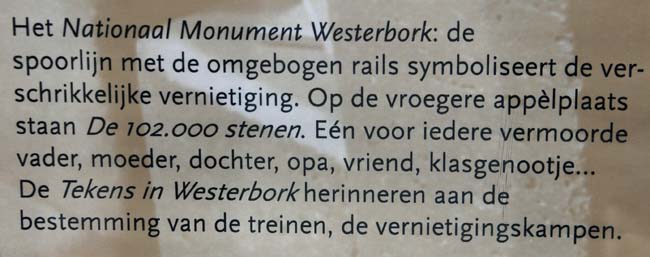
The National Monument Westerbork:
the railway with bent rails symbolizes the horrible destruction. At the
former call-over place there are The 102.000 stones. One for every
murdered father, mother, daughter, grandfather, friend, class mate ....
The Signs in Westerbork remind of the destination of the trains, the
destruction camps.
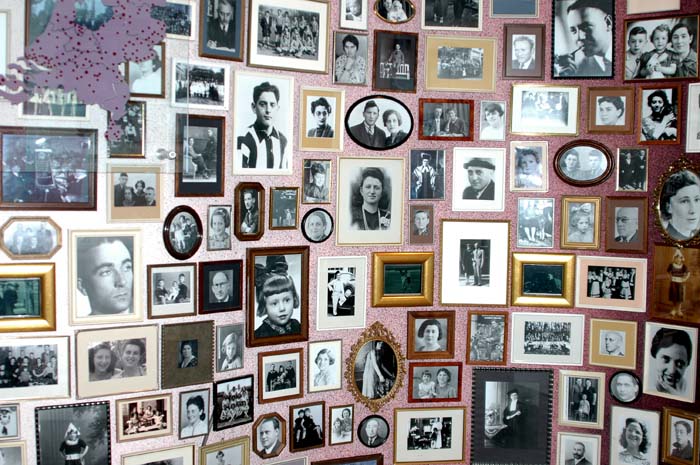
![]()
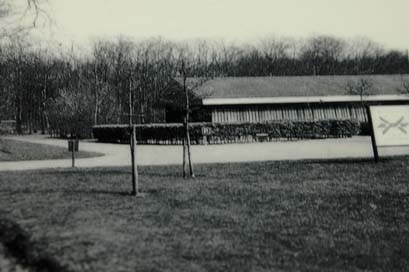
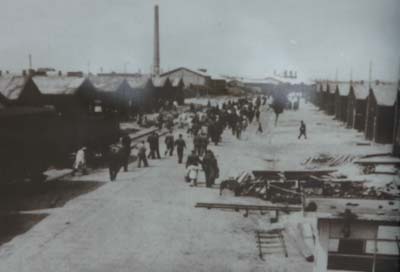
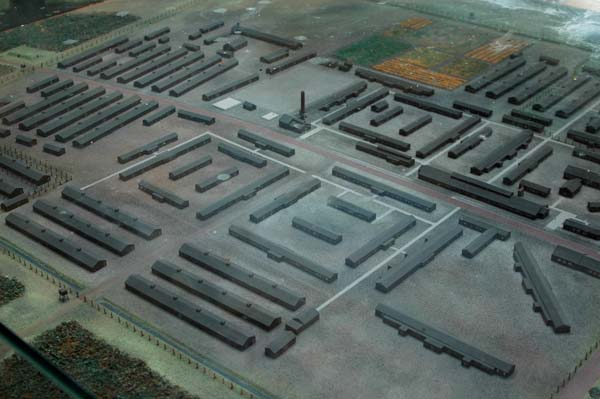
het verleden ~~ the past
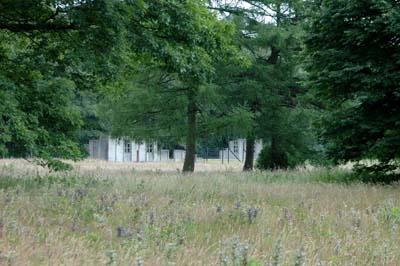
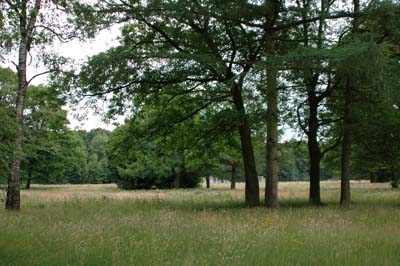
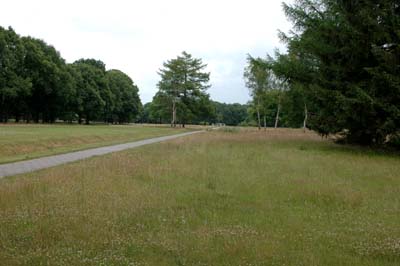
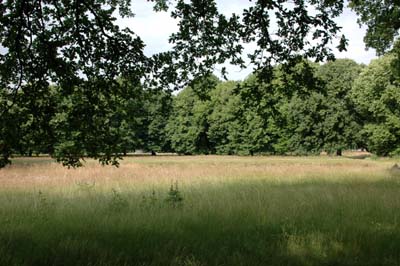
heden ~~ today
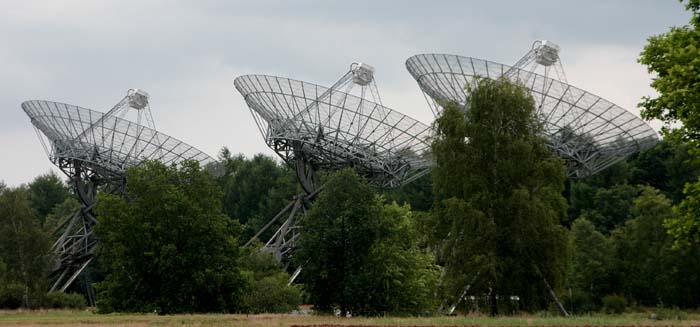
Direct grenzend aan het voormalige kampterrein is nu een sterrenwacht gevestigd
Directly bordered on the former camp ground there now is an astronomical observatory
![]()
the 102.000 stones symbolize the camp prisoners who stood here at the call-over and were killed in the concentration- and destruction camps in Eastern Europe. The lying stones were paved in the shape of The Netherlands. Except Jews also 200 gipsies and an unknown number of resistance fighters died.
Bij het zien van dit
onwetende vogeltje dacht ik onbewust terug aan wat mijn moeder in oorlogstijd zo
vaak tegen me zei:
'De vogels vliegen en zingen net alsof het geen oorlog is .....'.
This ignorant bird reminded me of what my mother told me over and over again during the war: 'Birds fly and sing as if there is no war at all ...'.
![]()
de barakken ~~ the barracks
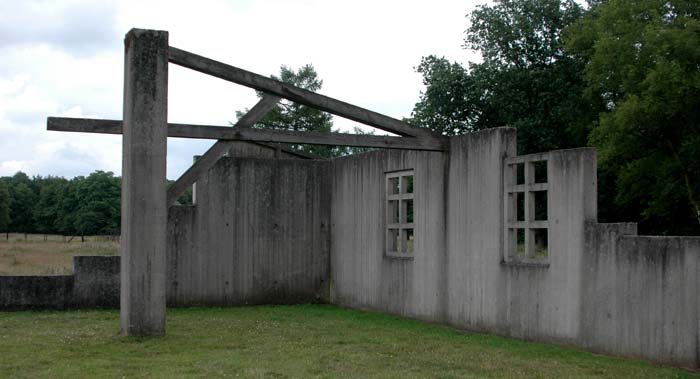
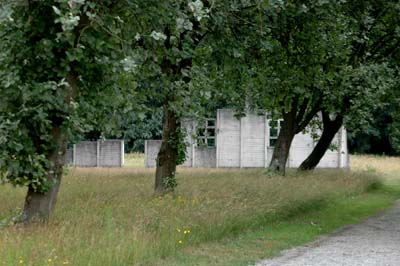
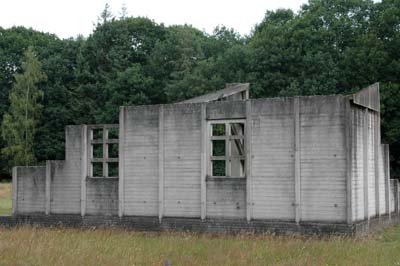
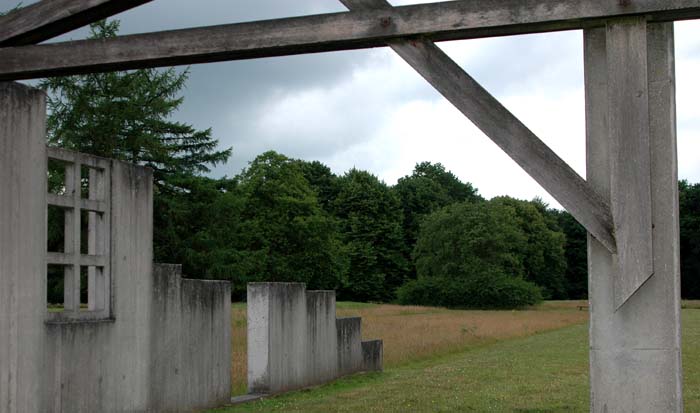
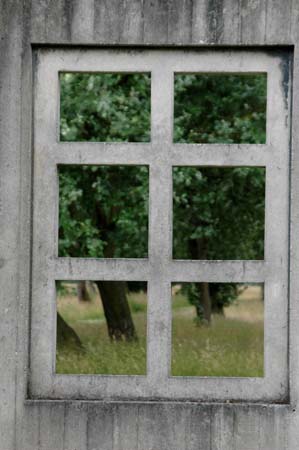
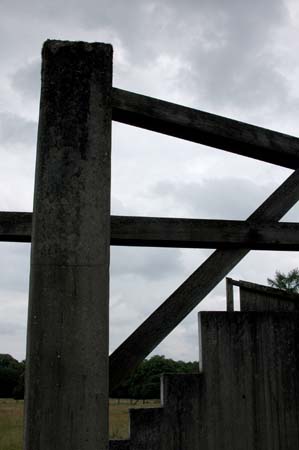
![]()
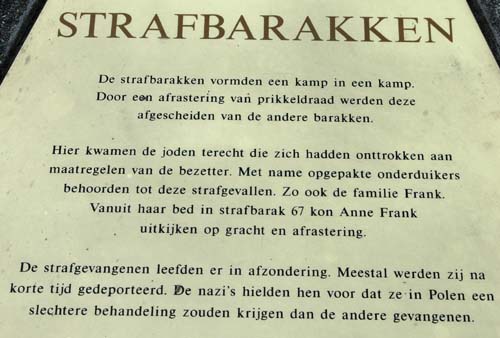
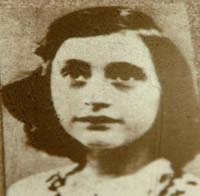
Anne Frank
The penal barracks formed a camp in a camp. They were separated from the other barracks by a barbed wire fence. Jews who had withdrawn themselves from the orders of the conqueror. Particularly caught persons in hiding belonged to the penal cases as was the family Frank. From her bed in penal barrack 67 Anne Frank saw the moat and the fence. The penal prisoners lived in seclusion. The Nazi's told them that in Poland they would get worse a treatment than the other prisoners.
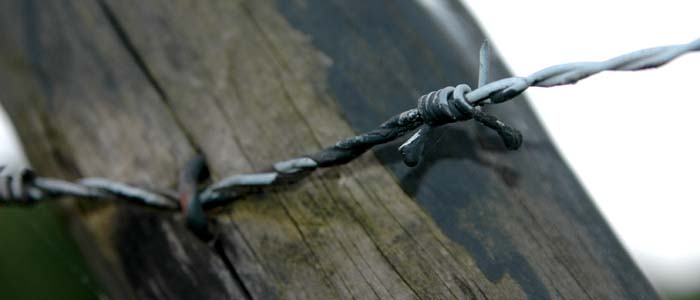
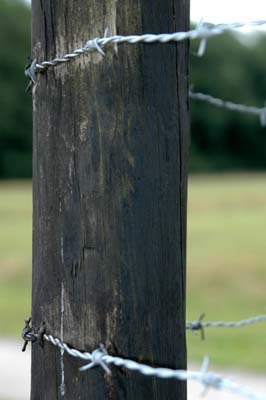
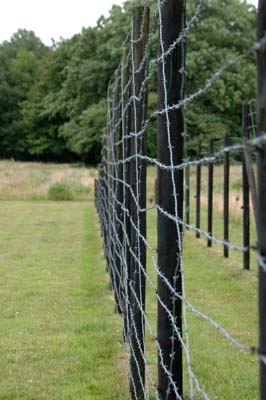
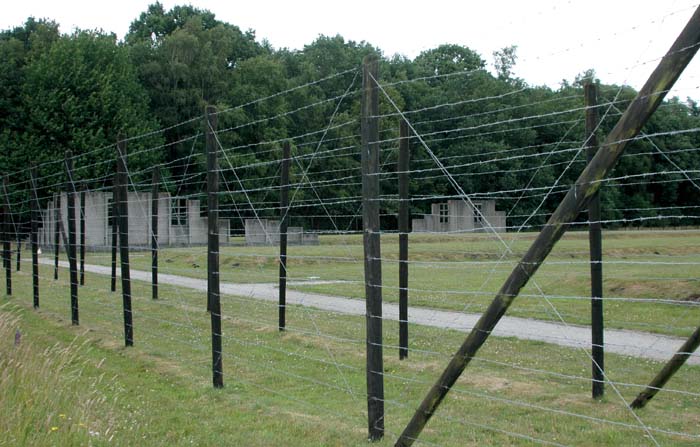
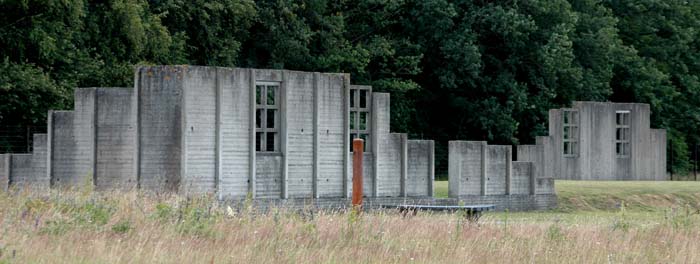
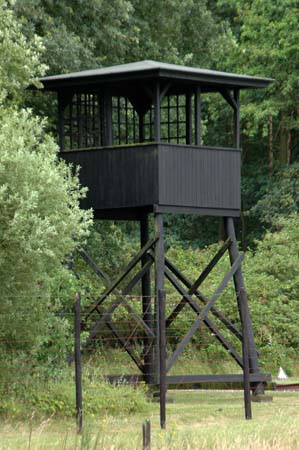
![]()
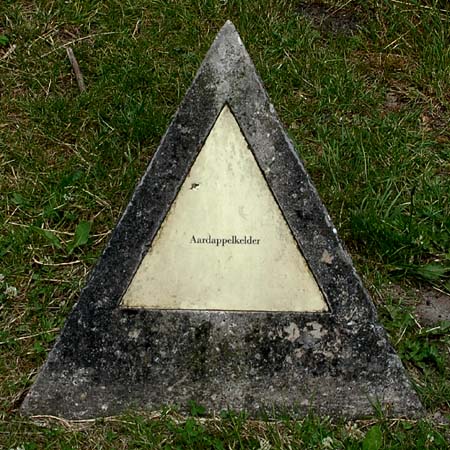
Potato cellar
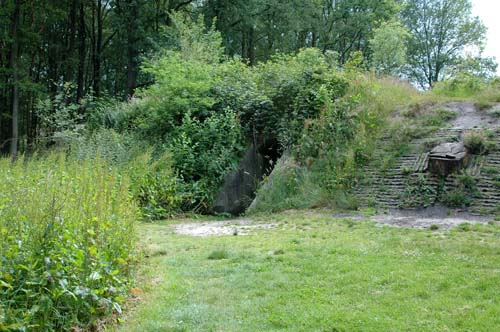
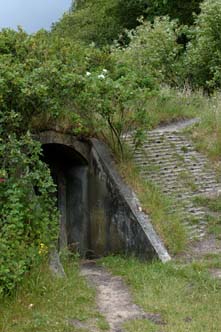
![]()
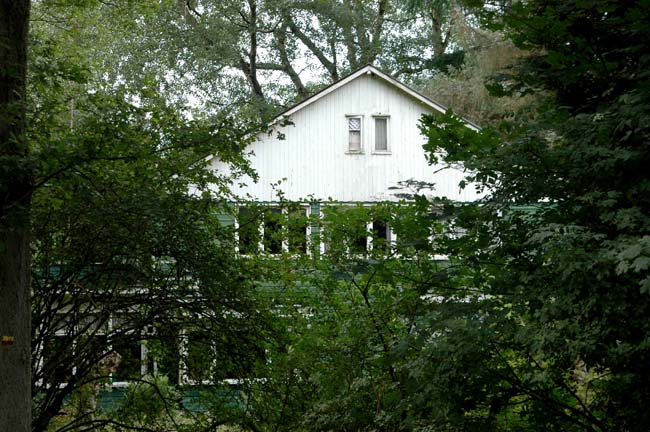
Het huis van de Duitse kampcommandant ~~ the house of the German camp commander
![]()
de spoorlijn ~~ the railway

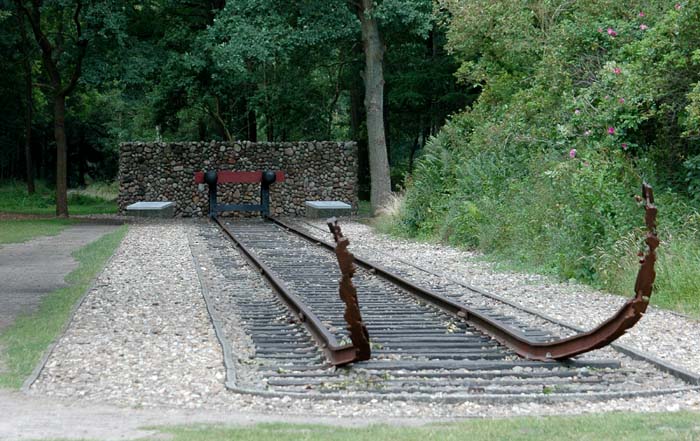
het begin van het einde .......... ~~ the beginning of the end .......
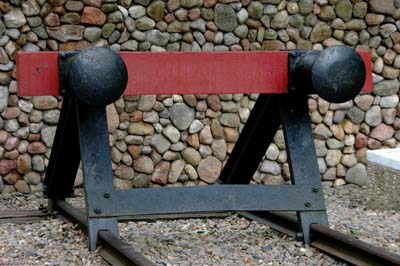
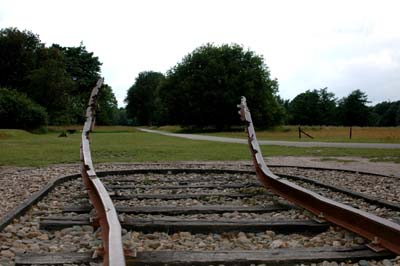
Deze plek is thans een Nationaal Monument
Today this place is a National Memorial
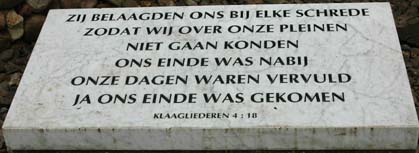
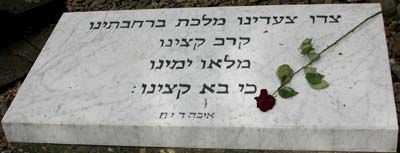
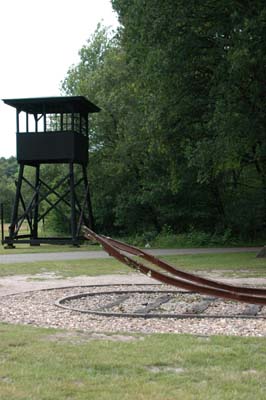
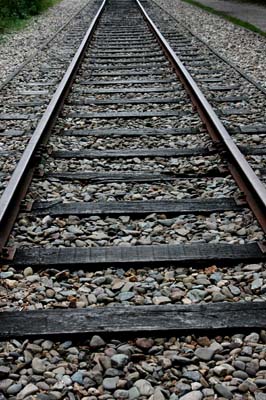
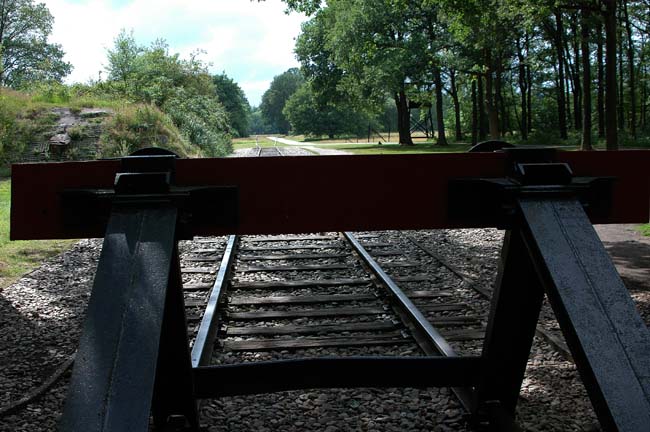
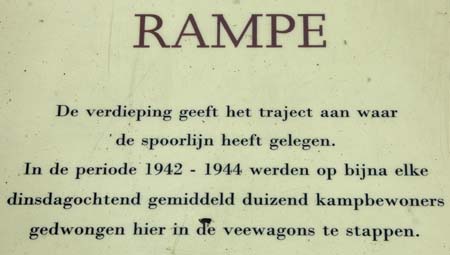
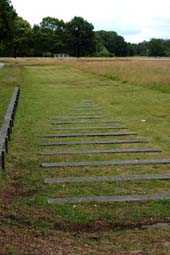
(Rampe [Duits] = laadperron ~~ Rampe [German] = loading-platform)
The deepening indicates where once the railway was. During the period 1942 - 1944 about a thousand camp inhabitants were forced here each Tuesday to get into the cattle-waggons.
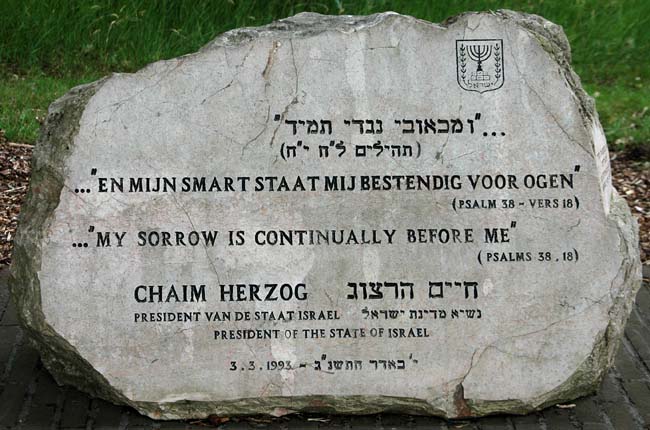
Ons volkslied - Het
Wilhelmus - dat in de oorlog verboden was.
Our national anthem - The Wilhelmus - which was forbidden in the war
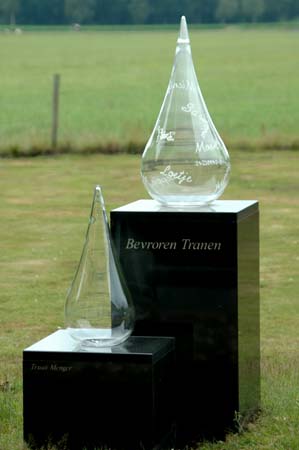
![]()
Westerbork Museum
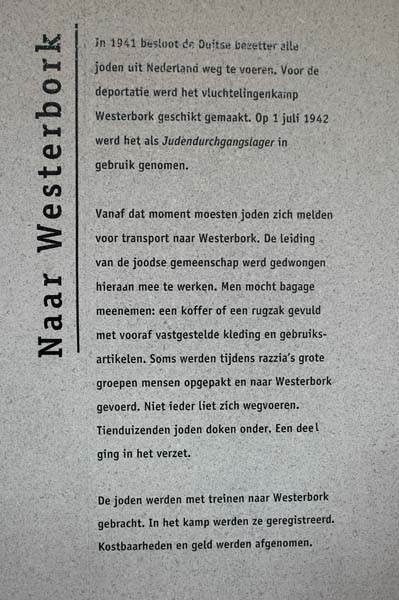
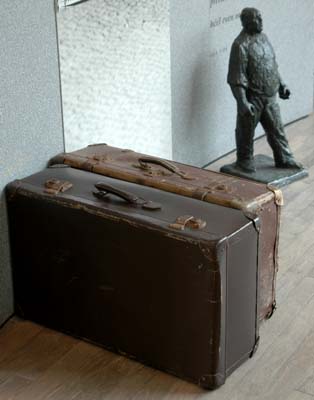
In 1941 the German conquerors decided to remove all Jews from The Netherlands. They made the refugee camp Westerbork suitable for this deportation. July 1, 1942 it was taken in use as 'Judendurchgangslager ' ( = transit camp for Jews) . From that moment on Jews had to report themselves for transportation to Westerbork. The management of the Jewish Community was forced to co-operate. It was allowed to take luggage: one suitcase or rucksack filled with clothes - fixed beforehand - and utensils. Now and then big groups were rounded up and brought to Westerbork. Ten thousands of Jews went underground. Not everybody let himself lead away. A part of them went into the resistance. The Jews were taken to Westerbork in trains. In the camp they were registered. Valuables and money were robbed of them.
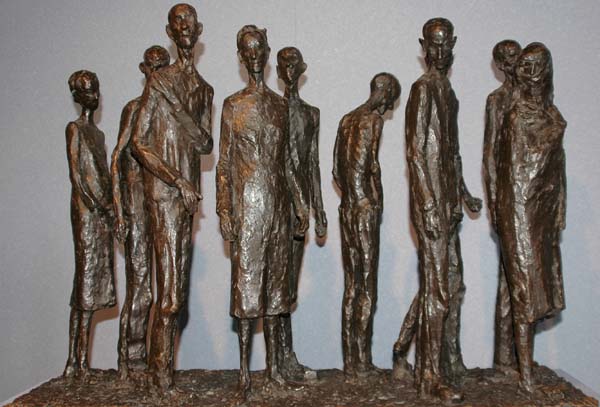
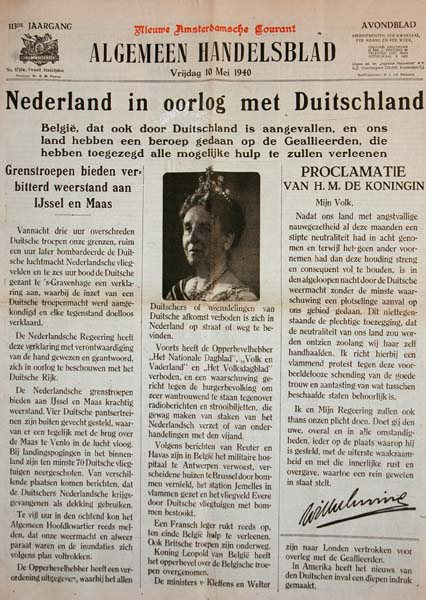
Friday 10 May 1940 :
Proclamation of Her Majesty Queen Wilhelmina in a Dutch paper
Holland was at war with Germany ...........
![]()
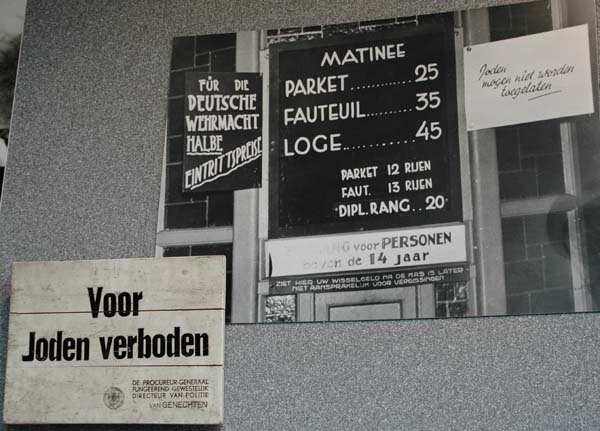
These signs said 'No Jews allowed' and - mind you! - the German soldiers ('Deutsche Wehrmacht') were allowed to pay half the entry price for the movies ...
All Jews had to wear a yellow star with the word 'Jew' on their clothes so that they could be recognized by the Nazi's easily .....
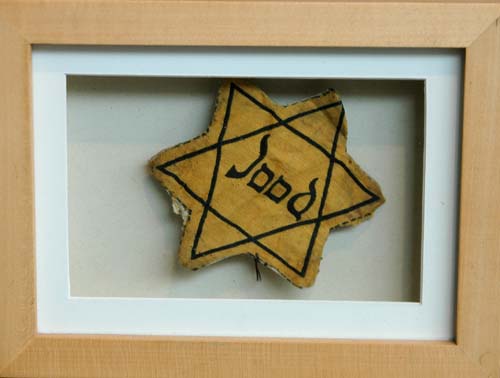
An aunt of mine, who was married to a Jewish man, had sewn the star at the back of her husbands coat and when they went somewhere where Jews were not allowed, she simply put her hand on the star.

Meanwhile, the German soldiers were mainly interested in Dutch bicycles ....
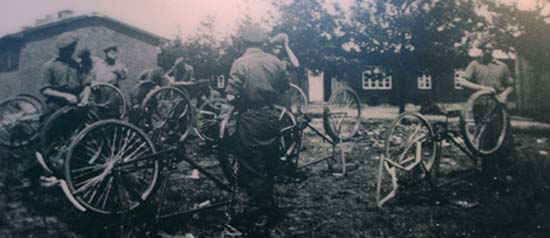
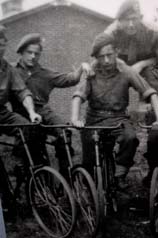
![]()
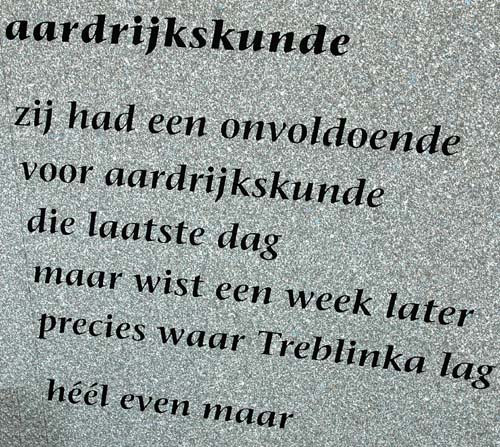

geography
she had an insufficient
mark
for geography
that last day
but a week later
she knew exactly where Treblinka was
only for a very short time
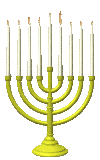
(poem by Ida Vos)
![]()
![]() Nanda Alstede
Nanda Alstede